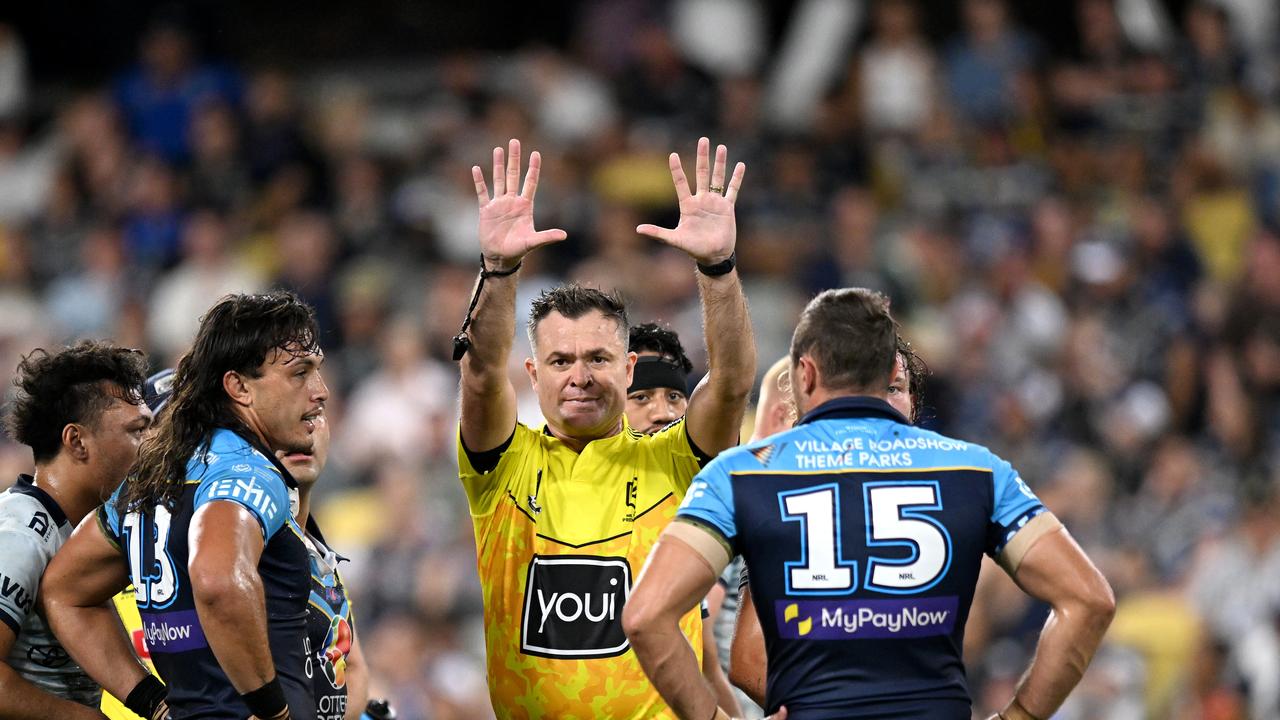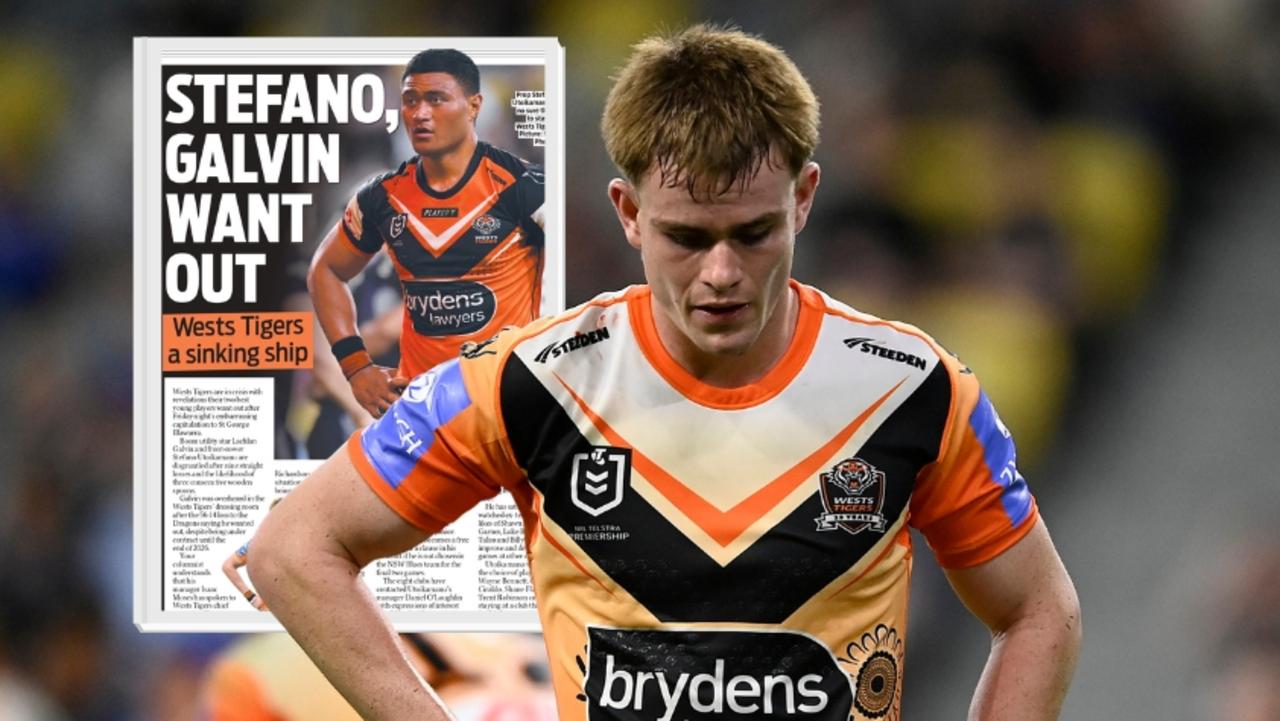Coronavirus fears reveal how poor management led to NRL’s fragile financial state
Asked how the NRL had got itself in this position, billions of dollars in broadcast money but enough cash to survive only a few months, Todd Greenberg dodged the question. But the truth is unavoidable, writes PAUL KENT.
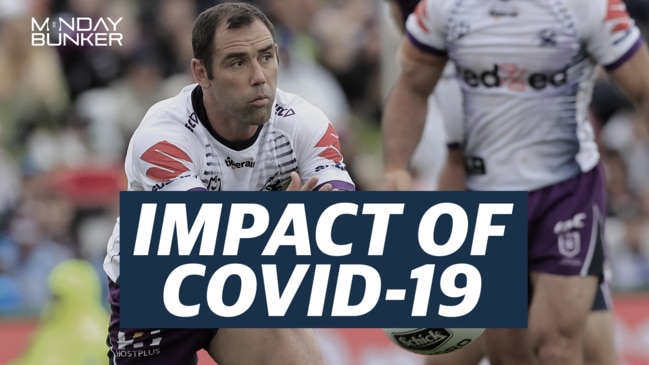
Opinion
Don't miss out on the headlines from Opinion. Followed categories will be added to My News.
He opened for business at nine like he does every morning, except for Sundays when, he says, he takes a day of rest, and almost immediately they poured in.
A woman who normally spends $20 a week walked out with her recyclable bag filled with $240 worth of steaks and hamburger meat.
“People are panic buying,” he says. “We haven’t even set the shop up yet.”
By the time his doors open each morning Chris Mumme has already done three hours of work preparing, butchering sides of beef and sheep into neat rows behind the glass for his customers.
Another woman who calls each day for two schnitzels left the butcher shop with eight schnitzels.
“They can’t be frozen,” he warned. “They’ll go soft.”
Watch the 2020 NRL Telstra Premiership on KAYO. Every game of every round LIVE & Ad-Break Free during play. New to Kayo? Get your 14-day free trial & start streaming instantly >
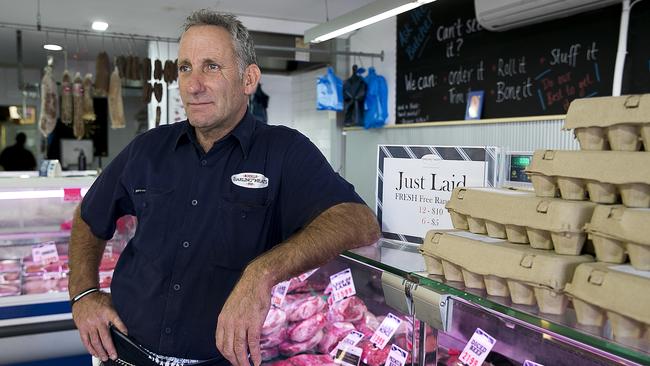
It didn’t matter to her because all she wanted was to eat and soft is better than nothing.
This is the world we live in.
Mumme turned up at work on the basic economic premise that if he does not work he does not get paid, and he is very fond of being paid. You cannot pay with buttons.
All over this city working men and women got up and headed to work like Chris Mumme, who owns Darling St Meats in Rozelle and works six days a week, 12 hours a day, because he does not have the luxury of shutting his doors for several weeks and sitting at home on full pay, like Cameron Smith seemed to suggest on Sunday, to wait out the coronavirus pandemic sweeping the world.
It is all crazy, of course.
“Fancy fighting over toilet paper,” he was saying to one customer, filling his shopping bag with rissoles and lamb shanks.
That is where we have found ourselves, a place where a brawl over toilet paper is regarded as a legitimate fight.
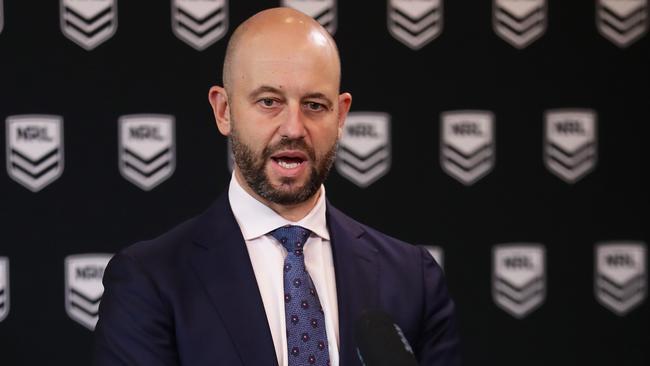
Smith can be forgiven for offering a seemingly plausible decision that pleased many but, in truth, will be difficult to survive and sharply contradicted his bosses.
Who pays the players while they isolate themselves?
On Monday NRL boss Todd Greenberg confirmed there were provisions to cut players’ salaries if they refuse to play.
“There are provisions in our contracts with our players in the CBA (Collective Bargaining Agreement),” Greenberg said.
“It’s called a material adverse change provision.
“If revenues of the game drop it allows us to go back and have a discussion with the players about the Collective Bargaining Agreement.”
Asked directly if it meant a pay cut for players, Greenberg said: “Potentially.”
Of course, it is the only way it can happen.
FOOTY TIPS! Join Australia’s best footy tipping competition for your chance to win big. Add our experts to your league and join now at TIPS.COM.AU.
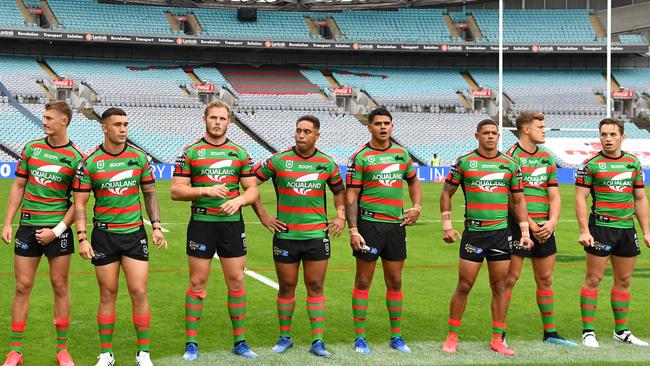
On Monday morning a couple of goldythroats on FM radio wondered why the game’s broadcasters, which provide 65 per cent of the game’s revenue to televise eight games every weekend, would not continue paying as an act of goodwill.
There is an economic reality to all this.
Nine announced a 9 per cent drop in profit in February, prompting chief executive Hugh Marks to say the network had to drive $100 million out of its free to air business.
Marks suggested they might abandon big live sporting events like the Ashes to offset the losses.
Foxtel, which televises the NRL through Fox Sports, reported a $306 million loss last year.
The thought that either company would happily continue handing over almost $16 million a week, with not a game to show for it and with the potential for the entire season to be wiped out, is naively optimistic.
It dovetails into the NRL’s other problem with suspending the competition now; how long it would be suspended for?
A few months, at most, is sustainable.
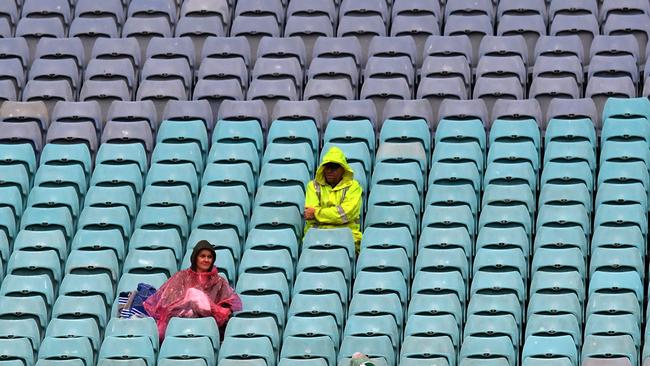
Already the World Health Organisation has said it does not expect the coronavirus pandemic to peak until May, while the NRL has been told it will be at its worst in mid-April.
With no vaccine it could be well into winter before the competition resumes.
Meantime the NRL hopes to bank as many games as it can before the competition is inevitably suspended, knowing the game has enough funds to sustain itself to perhaps July.
After that, clubs face the real possibility of going broke.
The NRL’s insistence to push ahead with its competition, which the AFL and A-League are also planning, highlights the over-reliance Australia’s football codes have on broadcast funding.
Asked on Monday how the NRL had got itself in this position, billions of dollars in broadcast money but enough cash to survive only a few months, Greenberg dodged the question.
It is incredible the game has spent about $1.9 billion these past eight years but has not one asset to generate money away from the playing field.
MORE NEWS
At The Track: Chris Waller wary of coronavirus impact on racing
EPL 2020: Liverpool fear Coronavirus could result in celebrating title in empty stadium
If there is a positive to come from the cost of the coronavirus pandemic it is that there might be a financial correction similar to what happens in stock market crashes.
Massive grants eaten up by massive players wages has left little for the welfare of the game.
The NRL’s financial mismanagement has made the game vulnerable, a cost being felt by honest workers across the city.
“We had tickets for the footy on Sunday,” Chris Mumme said from his butcher shop, where he has no choice but to work.
His daughter was travelling down from Noosa this week, with her boyfriend, and they were heading to Leichhardt Oval.
“She’s not coming now,” he said. Then he paused …
“I don’t get to see her that often,” he said.
Originally published as Coronavirus fears reveal how poor management led to NRL’s fragile financial state


